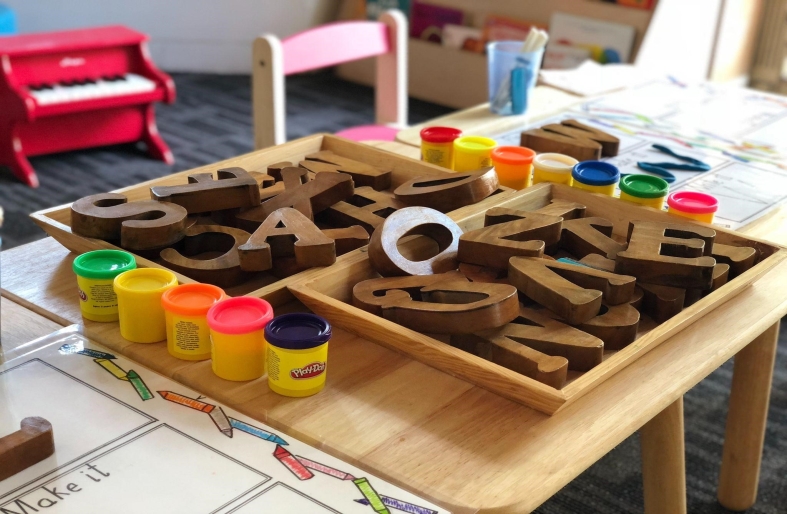Main Text
In India, the benefits of kindergarten schools for children are something that a lot of parents and educational specialists agree upon. Kindergarten is often regarded as the primary period where children begin to acquire the basic skills that they will need to learn in school throughout their academic lives. These skills include reading, writing, simple calculations, socialization, and reasoning. All of these aspects of daily life are learned in kindergarten, making this a particularly important stage for young children.
The time that is spent in kindergarten plays an essential role in the development of our students’ intellectual and emotional readiness for further academic achievement. This is also a crucial time when students are receptive to new ideas and when they can begin to differentiate between different types of people and events within their surroundings. Throughout this stage of development, children will be able to recognize and apply basic concepts that they have learned from an objective standpoint. At this point, they will also be able to recognize the relationship between concepts and their application. In this way, a Kindergarten school in Kolkata can serve as an essential component of the educational process for students nationwide.
What are the benefits of kindergarten classes for children?
Children who attend this particular level of education will benefit from having an environment that provides a safe and accepting environment in which to participate in classes. These classes can be challenging, and many students become frustrated because they cannot identify a specific challenge or interest. When children come to a Kindergarten class, they know that there are no secrets, that all are welcome and encouraged, and that there is no reason to feel embarrassed about being different. This sense of solidarity among classmates is also very important, and it can encourage even the most-shy children to become more involved with their peers in order to build friendships that last throughout their academic years.
Kindergarten also allows students to learn basic social skills, as well as prepare themselves for the next stage of their education. Kindergarten teaches children how to interact with others, to listen carefully to others, to communicate with others, and to respect the feelings of others. All of these skills are important in order to participate in class time, as well as in daily interactions with classmates and friends. This early exposure to a range of interactions helps prepare children for the rigors of school and everyday life. The time that children spend in kindergarten classrooms is also important for their development, as they gain the experience of working with classmates and adults. They also gain the fundamental educational skills that are necessary to prepare them for kindergarten, whether they are enrolled in regular Kindergarten classes or are home-schooled.
Perhaps the most obvious benefit of kindergarten schools for children is the development of social and emotional skills. Kindergarten creates a supportive, inclusive environment in which children can learn to cooperate with others, accept help, and respect the opinions of others. All children benefit from this introduction to the classroom environment, and those that do not immediately gain these crucial skills are missing out. Kindergarten plays a vital role in shaping children’s attitudes toward authority, respect for self and other people, and their own and other’s rights. Through Kindergarten, children begin to develop healthy relationships, and these relationships become lifelong commitments that they carry through their academic years and beyond.
Social and emotional skills are just as important in school as academic skills, although most teachers focus far too much time on the academics of the day. Those qualities that are taught in kindergarten are essential for developing healthy friendships and a positive self-image in the student. In Kindergarten, children gain the skills they need to be successful in school, and they are able to face challenges and handle different types of situations. These qualities can make them more likely to be independent, and they can make them stronger and more capable learners. In social development, Kindergarten children are introduced to the essential elements of civilized behavior: fair play, sharing, and cooperation.
These natural social skills can go a long way into the student’s future life. It is not uncommon for children to act out in class or behave inappropriately in public settings because they lack the skills and confidence to address these issues head-on. This lack of self-discipline can manifest itself as inappropriate and rude behavior in school, which can result in a low grade, failing grades, and exclusion from clubs and activities. By teaching these social skills in kindergarten, children gain confidence and independence and are able to address their problems without negative consequences.
Final Take
Parents have a duty to ensure that their children are healthy, well-balanced, and well-rounded citizens. Kindergarten plays an important role in building up academic readiness and promotes healthy social and emotional development in children. Through teaching Kindergarten student with the basics of school, parents can help prepare their children for kindergarten by setting the appropriate expectations in terms of academic and social behavior

